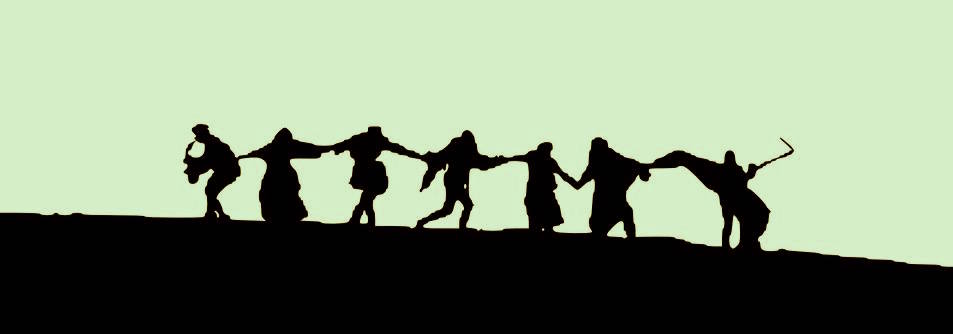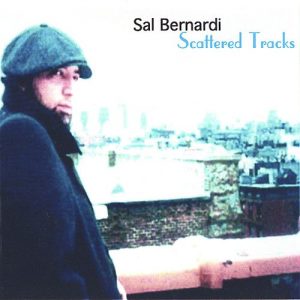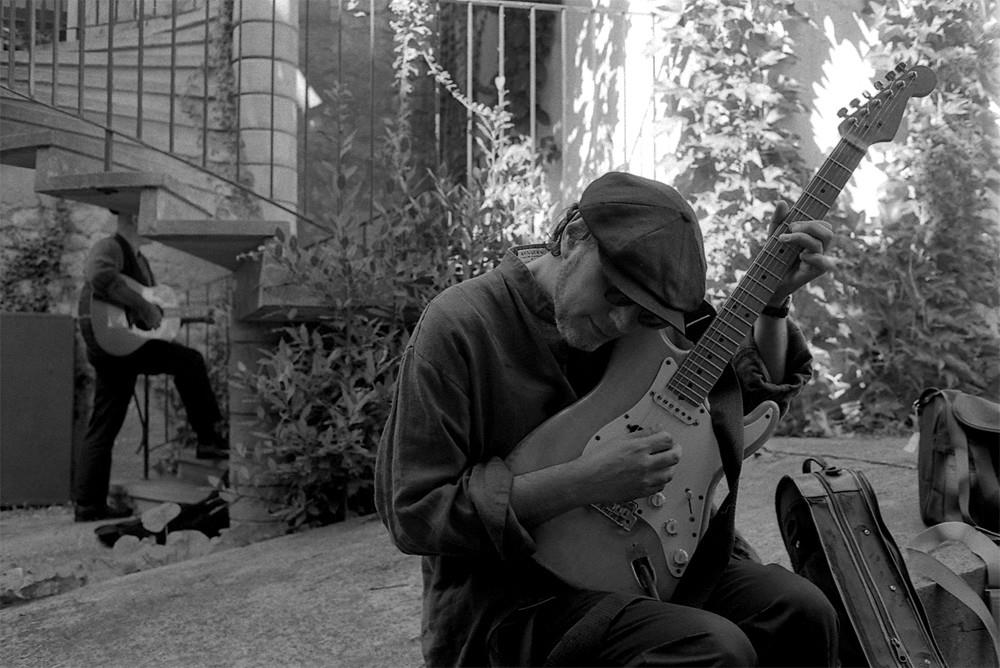
Mizar6: Where did it all start? Like, where did you grow up and how did music become your language, skill, occupation? Thomas Dolby would say: “Tell me about your childhood.”
Sal Bernardi: I grew up in Northern New Jersey, a few miles west of Manhattan. In the mid 60s, when I was about 14, 15 or so, I was lead singer and harmonica player for a little neighborhood band called the Blues Generation. We played at school dances and sometimes down in Greenwich Village at the Café Wha? and the Night Owl. One night Jimi Hendrix dedicated a song to our band at the Fillmore East. I came up with the name “Blues Generation” and on some level would like to think that Hendrix was the first artist to cover one of my titles. Perhaps, a bit of a stretch, but the atmosphere in N.Y.C. was swinging with possibilities in those days, although, it was a bit frustrating because we were still too young to be taken seriously. But it was a starting gate.
M6: Can you name some of your most early influences in music? Was there anything or anyone that blew you away or has a lasting impression?
SB: Having grown up in the fertile 60s, the influence list would be really long. The Band’s second album comes to mind, along with various tracks from Traffic, The Spoonful, Zappa, Kinks. The usual suspects of the era. Leonard Bernstein was sort of influential.
“Even though I write and play in a simple pop genre, I will sometimes add a Bernstein flavor into the mix.”
M6: Did you intend to be a professional musician, or did it just happen? How do you make decisions in life, like where to go and what to do… do you follow your instinct, or a hunch, or how do you do things?
SB: The initial plan was to be a commercial artist. I went to art school for a while, then drew some adverts for a local magazine called the “Aquarian”and that was as far it went. The song writing thing kicked in around that time. I guess I felt like I was on to something. Songs were sort of coming quite naturally, without really trying. There was honing to be done, but I was up for it.
Song writing is sort of a mystery because it’s not always clear where they are coming from. They are kind of like musical daydreams.
The songs sort of document the time and place that you were in when they were being dreamed up. I don’t remember what I had for dinner last night, but I sort of remember where I was when I wrote certain songs dating back to the 70s. As far as decisions are concerned… Whim, hunch, instinct, chance. Get on the train that comes along and go with the flow. Or don’t get on the train. I don’t really know, that’s a hard one to answer.
M6: What was the first song or piece of music you wrote, can you remember, and when did you write it? And what is it you hear in your mind, a melody, or chords, do you imagine a whole band, or an orchestra?
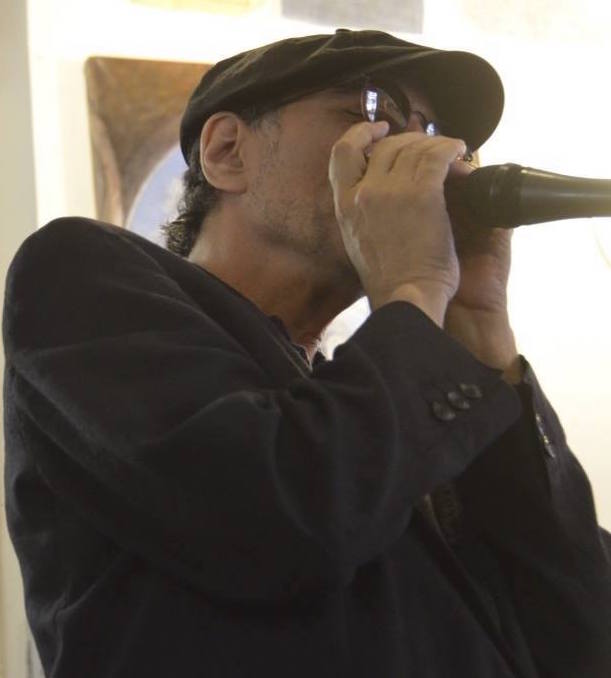
SB: “Red Rolls Royce” and “Misunderstood.” 1966. Our little neighborhood band went in to a home studio and made a 45 record of it. We called up a record company called “Kama Sutra” records and arranged a meeting. “Kama Sutra” was a small label that was having some success with the Lovin Spoonful. We called in the morning and the guy said “sure come on by this afternoon.” That’s how easy it was to get a demo listened to in those days. At that time, midtown Manhattan was the center of the recording industry. Me and one of the guys in the band got on the bus and into town. We were only 14 years old, so the A&R guy wasn’t that thrilled to see us. He sat down and listened to both sides of the record, shook his head and said something like “not bad, come back when you’re old enough to sign a contract.” It would be a few years before I wrote another one.
Rickie Lee Jones sings Pretty Poison live (written by Sal Bernardi)”
The melody usually comes first. Or a chord structure will sort of work hand and hand with a melody. Sometimes a lyric will play into that, but words can be somewhat of a chore for me.
M6: It sure worked out on “Pirates” though, the song you wrote with Rickie? Traces of the Western Slopes, eight minutes long. That was something else! They sometimes say someone is a musician’s musician, well, that song is a musician’s song for certain, especially considering who is on that album! What do you remember about recording those albums, with those musicians, it’s a cast of legends and giants, right? And is there anything you can say about recording the “Flying Cowboys” album and working with Walter Becker who produced it?
SB: The “Pirates” sessions were a lot of fun. It was the first time that I had been in a studio filled with real deal players. I co wrote “Traces of the Western Slopes” and remember being in the control booth watching the song come alive when these great players were in the studio laying down the basic tracks. With Chuck Rainey playing the bass part, that sort of anchored the ship. I think Steve Gadd was on drums. There was a horn section idea that I came up with for the song “Pirates” and I had to illustrate the part on harmonica to the Brecker Brothers and David Sanborn. I’m guessing it was more interesting for me than it was for them. But yeah! It was a pretty cool minute.
The song “Flying Cowboys” started with a keyboard part played in the key of C sharp… I guess I didn’t bother asking what key it was in and added a twangy guitar riff in the shape of an F sharp chord. It seemed to work and no one, including myself, noticed the difference until some years later, when guitarists from various touring bands couldn’t figure out how to play it because it was so incorrect, or because of its unusual angle approach.
Walter Becker played bass on the track, along with Peter Erskine on drums and Dean Parks playing a melodic guitar line, toward the end of the song. They also played in the band that appeared on The Arsenio Hall show. There is a YouTube clip of that performance. We also played that song with The Blue Nile, up in Scotland. There’s a YouTube video from that show as well.
M6: I read in the pennyblackmusic.co.uk interview you initially spent some time in Quebec, when you were young. And then in the 80s you went to Paris. And you stayed. Is there something about the French, the culture or language, that draws you? Maybe it’s in your genes? Have you ever traced your ancestors, or anyone in your family perhaps? Your name would suggest Italian roots, right? Which generation before yours traveled across the seas to the land of hope and glory (back then)?
SB: Actually yes, one of the Italian grandparents had a French name. Many tribes had passed through Sicily. Moors, Greeks, Saxons, French etc. One big melting pot of intruders and invaders. I don’t know if that has anything to do with my particular situation, but
Paris sort of suits me.
There are similarities between French and Italian attitudes. That Latin Mediterranean “relax and enjoy life” outlook. Perhaps there is a common thread on that level. I’m second generation. The grandparents were part of the European Immigration wave of the early 20th century. New York was the port of entry and a lot of the newcomers just stayed in the area. When I was a kid, I sort of equated broken English with greying elders, because everyone’s grandparents seemed to speak with Italian or Polish accents.
M6: When we get older, we often tend to go back into our past, revisit parts of our youth, or remember it, things in childhood. The scent of an orange, maybe, or waiting at the bus stop in the scorching sun. Is there anything specific you remember from your early childhood, and would want to share?
SB: A bit vast to get into.
M6: You’ve recorded and performed with Rickie Lee Jones, Willy “Mink” Deville, and others. Boneyard, mentioned in the pennyblack article. And in Paris you perform with Mike Cahen frequently, according to some YouTube videos I found. Are you still writing new music?
SB: Yes, the songs keep coming. Getting into a studio with a good band is a different matter. Occasionally I co-write with local artists who record and tour. There is a recent release that I wrote with a singer-songwriter named Mathis Haug called “Wild Country”. I met him about 8 or 10 years ago through a publisher, there were a few songs that we’ve collaborated on since then: “Family Fire,” “Carnival Train,” and a few others. Mike Cahen and I are just doing some loose bar gigs around the neighborhood, at the moment. Mostly instrumentals that could blend in with bar noise. But, we play some originals and try to keep it correct for ourselves and the folks who are listening.
M6: You’ve been in Paris for quite some time now. Things are quite different in the States, politically, and Europe is changing as well. Do those events affect you in any way?
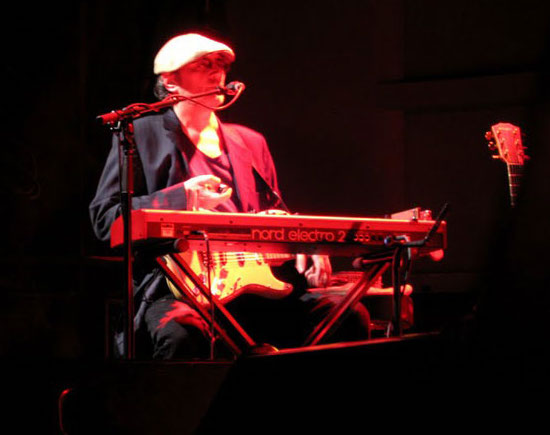
SB: I guess the current state of affairs is having an effect on everyone to some degree. There’s a lot of negative calamity in the collective psyche. I think it’s important to keep a joyful noise in mind. I received a message from someone who had been listening to my recordings. She said something like the music had a calming effect on her. Art and music serve a greater purpose when times are tough.
Nero played the fiddle while Rome burned. Although, I think he actually started the fire. You may want to fact check that last bit.
M6: Are there still places you’d like to go to in the world, to visit, to see, if so, where would you like to go and why?
SB: I don’t really like to travel, these days. But it might be fun to re-visit some of the old haunts like San Francisco. Or Quebec city.
M6: Paris. What are your favorite pubs or places to hang out, and can you recommend anything for the non-accidental tourists looking for honest food and honest music?
SB: Don’t get out much, but I think there are still some jazz clubs around Chatelet. And if you happen to be around Notre Dame around 5:PM, the cathedral bells ring out in a glorious way. It only lasts for a few minutes, but it’s a grand sound.
M6: If you found a bottle, that also had a genie in it, and you were granted three wishes. What would you wish?
SB: If I started to imagine genies at the end of the bottle, I would probably lay off the dinner wine for a while. My wish would be that doesn’t happen.
M6: What advice would you have for aspiring young musicians or singer-songwriters who want to “make it” in this time and age?
SB: Advice? O.K. I’ll give it a try. It’s a roll of the dice.
If you’re really dedicated, hone the craft, suit up and take a shot. Ultimately, it’s about elevating an audience. So try to have some fun and spread the vibe.
At the same time, be aware of business.
M6: Last, but not least: what is your definition of happiness, what makes you happy?
SB: Waking up in the morning (late morning) is a good start. Playing or listening to innovative music, being around people with a sense of humor, strolls along the river Seine. Good food, fine wine, kind women, inner light awareness and so on. The simple things.
M6: Thank you so much, Sal, for this interview. Please keep us posted if there’s anything you’d like to share or see shared, we’ll happily spread the word.
===============================================================================
Discography: Scattered Tracks is a collection of songs and demos recorded in the 80s and 90s. The instrumental film soundtrack demos were recorded in 2002.
- Harmonica, guitar, piano, bass, drums, percussion and whistle: Sal Bernardi
- Bass, cello and mandolin: George Wolfaardt
- Drums: Amaury
- Pretty Poison choir: Rickie Lee Jones
- All songs composed by Sal Bernardi
Album notes: “Sal’s writing ability rivals his talent as a musician and vocalist. He plays a variety of instruments including, guitar, harmonica, piano, accordion and percussion. He’s played to the crowds of night clubs, concert stages, festivals, as well as for TV and radio. He also writes soundtracks for film and TV. A few of these projects include the soundtrack for Lech Kowalski‘s award winning On Hitler’s Highway from 2003, the soundtrack for a special report by France 3 television and playing harmonica on soundtracks such as the 1984 film “Hard Choices,” written and directed by Rick King and produced by Robert Mickelson.
Sal began playing professionally in the 70s with various bands, solo artists and as a solo musician/singer/songwriter himself. In the early 80s he recorded and toured with Rickie Lee Jones. Their relationship sparked many a collaboration, composing such songs as Traces of the Western Slopes from the Pirates album (1981), Theme for the Pope from The Magazine (1984), Flying Cowboys from Flying Cowboys (1989), Tigers and Beat Angels from Traffic from Paradise (1993).
Other collaborations include the songs “Gypsy Deck of Hearts“, “One Love in One Lifetime” and “Lay Me Down Easy” from Willie De Ville’s album “Horse of a Different Color” from 2000, “Brown Eyes” and “Phantom of the Footlights” from Buzz Feiten and Neil Larsen’s Full Moon album from 1982.
As well as performing and recording, occasionally, and still, with his dear friend Rickie Lee Jones, Sal has enjoyed performing and recording with a range of musicians and friends such as Blue Nile, Elliot Murphy, Eric Anderson, Lenny McDaniel, J. de Rosa, D. Moussa Conde and Alan Merrill to name a few.”
